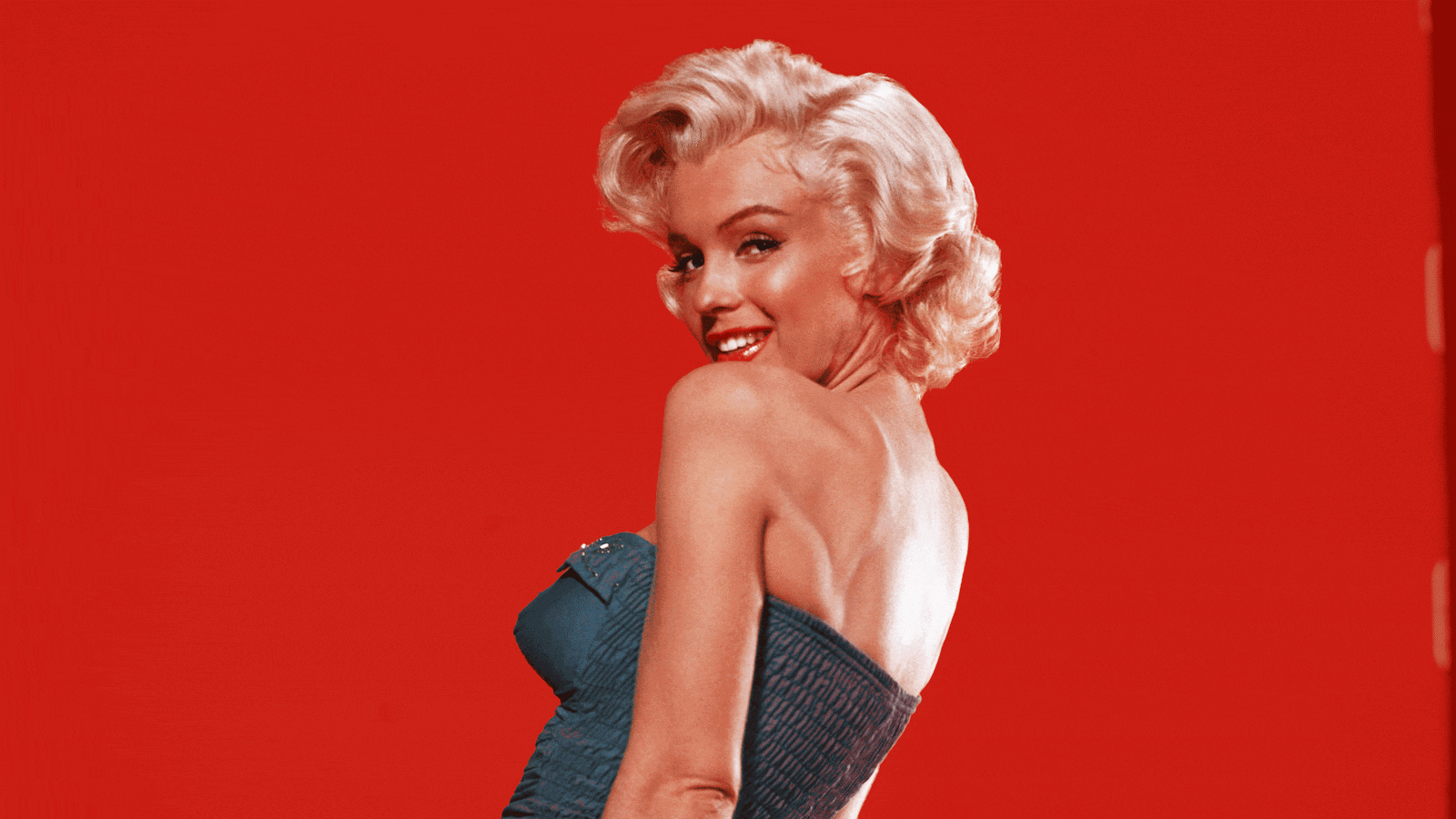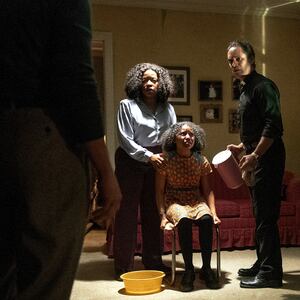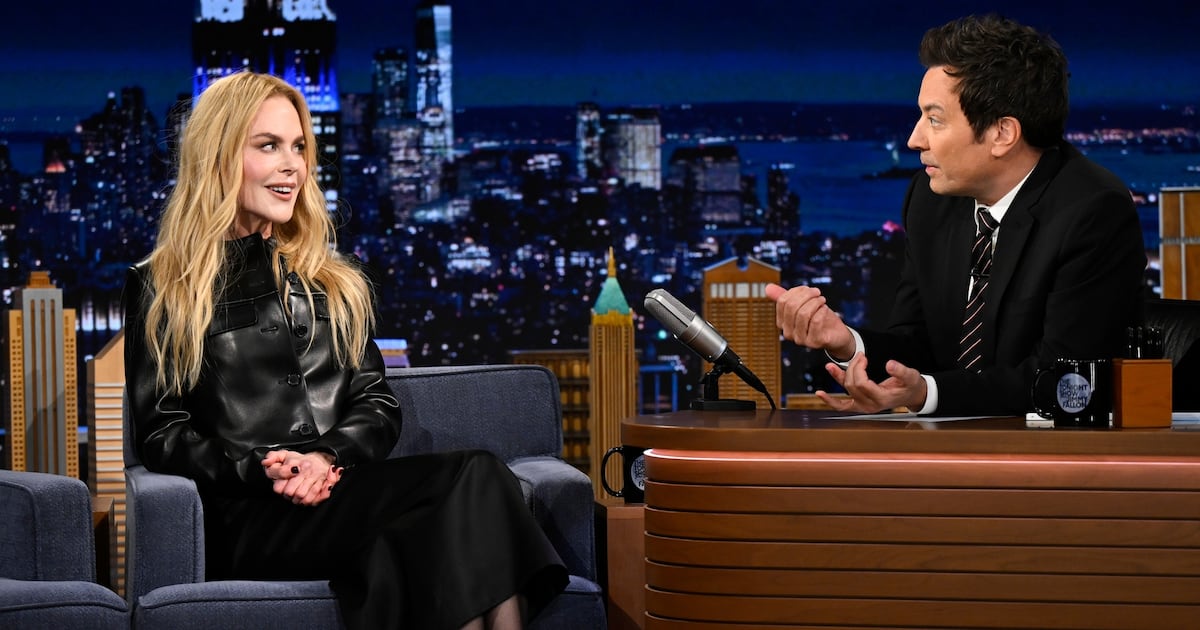Marilyn Monroe was a timeless beauty, a great movie star, a gifted comedian, and a complicated human being whose personal and professional struggles played out in the harsh glare of Hollywood’s spotlight. Reframed: Marilyn Monroe, however, cares little for Monroe’s complexity. Per its title, CNN’s four-part docuseries (Jan. 16) about the actress’ life and career aims to rewrite Monroe’s legacy, recasting her as a figure who wasn’t a passive, tragic victim but, instead, was a fighting feminist trailblazer who stood up to a misogynistic, paternalistic culture that sought to bring her low. That was, in part, true, although this non-fiction affair’s praise is so uniformly insistent that it ultimately plays as a one-note agenda-driven work intent on reimagining and celebrating the icon in inflated, and distinctly modern, #MeToo fashion.
This isn’t to say that Monroe wasn’t sometimes unfairly and disgustingly looked down upon, denigrated and mistreated during her stratospheric rise and premature fall, culminating with her 1962 death (due to a barbiturate overdose) at the age of 36. Rather, it’s that Reframed: Marilyn Monroe (narrated by Jessica Chastain) wants to forward a specific thesis, and spends its four installments doing nothing but restating it, transforming every single notable moment in Monroe’s life into an example of her strength, tenacity, shrewdness, independence, and “agency”—the last an incessantly heard term used to underline the idea that Monroe was in complete control of herself and her path at all times. Proactive self-sufficiency is the guiding theme of this endeavor, although it remains an inconsistent through line, since director Karen McGann’s portrait vacillates on a dime between damning a variety of men (and the systems they created) for harming Monroe, and contending that Monroe wasn’t truly victimized because she struck back at her oppressors at every turn.
Such confusion undermines much of Reframed: Marilyn Monroe, although its desire to recontextualize Monroe as a 21st-century feminist pioneer is clear from the get-go—and culminates with Amber Tamblyn claiming, at the conclusion of the final episode, that she thinks Monroe would have been on the frontlines of today’s activists and a big voice in the #MeToo movement. Whether that’s accurate or not, the urge to comprehend Monroe in contemporary progressive terms instead of on her own is this docuseries’ primary shortcoming. Without fail, Monroe’s every action is depicted as emblematic of her determination, talent, and intelligence, including her setbacks, which are creatively cast as indicators of her defiance, resolve, and bravery. In this perspective, Monroe suffered no real failures or made any mistakes; her every move was an expression of her enlightened skill and genius.
Reframed: Marilyn Monroe purports to see Monroe as she truly was, divorced from the misogyny of the era. Yet it’s so consumed with dispensing a specific kind of veneration that it winds up being unpersuasive, even when its particulars—and its analysis of those points—are on-point.
Buoyed by photographs, film and press clips, and audio interviews with Monroe, director McGann’s investigation traces Monroe’s journey from aspiring contract-player starlet to leading lady—a trajectory that included clashes with Twentieth Century Fox head honcho Darryl F. Zanuck, a relationship with Columbia Pictures bigwig Harry Cohn, and an eventual fight to create her own production company that would grant her the power to choose a broader array of roles, as well as her scripts and directors. For those who don’t know anything about Monroe’s tale, this material is covered briskly and with requisite drama. It’s also embellished by commentary from a collection of talking heads, be it actresses Ellen Burstyn and Mira Sorvino, biographer Cindy De La Hoz, film critics Angelica Jade Bastien and Christina Newland, or American literature professor Sarah Churchwell, whose book The Many Lives of Marilyn Monroe is the basis for this effort, and who does the most heavy lifting in the overstating-things department.
Viewing Monroe in a novel light, free from the sexist attitudes and assumptions of old, is a noble and worthwhile aim, but Reframed: Marilyn Monroe doesn’t serve its subject well by reconfiguring her story to be unwaveringly flattering. According to those featured in the docuseries, Monroe was the real artist behind her memorable snapshots (the photographer was merely a functionary); she was her own best, strategic publicist; her USO tours were proof of her immense care for others and her political awareness; her love and support of Ella Fitzgerald showed she was an ahead-of-her-time civil rights hero; and her third husband Arthur Miller’s defiant stand against the House Un-American Activities Committee was actually Monroe’s idea.
On and on it goes, with people talking about how they want to know Monroe as a three-dimensional person even as they render her a radiant object onto which they can project their own timely politicized opinions. Tamblyn refers to her as “an original Kardashian” for knowing how to manipulate, and wow, the press, while other speakers bandy about phrases like “the male gaze” and “sexual economics.” No matter how relevant or apt some of these notions may be, Reframed: Marilyn Monroe has no interest in wrestling with the reality of the actress and her ups and downs, too busy is it promoting a vision that suits its own needs. For it, Monroe can’t simply be a luminous movie star; she has to also be a titanic artist. She can’t just be a canny media celebrity; she has to be a tactical mastermind. And she can’t have been someone who, in her later years, needed help; she was always a strong, fearless warrior who pushed back against a chauvinistic status quo that sought to reduce her to merely a platinum-blonde pin-up, even as she wielded her sex appeal for empowering ends.
Doggedly laudatory, Reframed: Marilyn Monroe fails to impart a genuine sense of who Monroe was; it replaces one mythic interpretation of her for another. Course-correcting to an excessive degree, it avoids grappling with the messiness of its subject in favor of turning her into a simplistic symbol of modern womanhood, and the continuing fight for female equality. In trying to expand our understanding, it proves frustratingly reductive.







